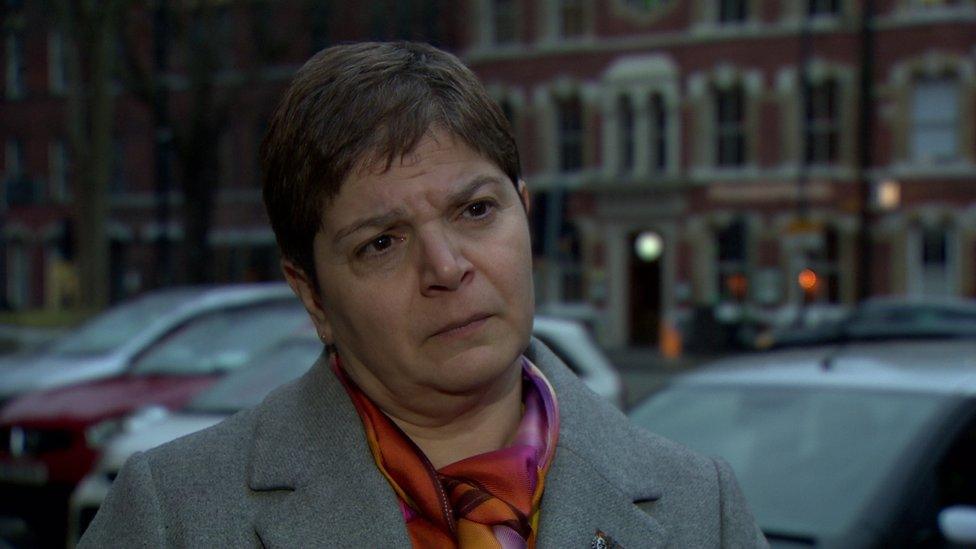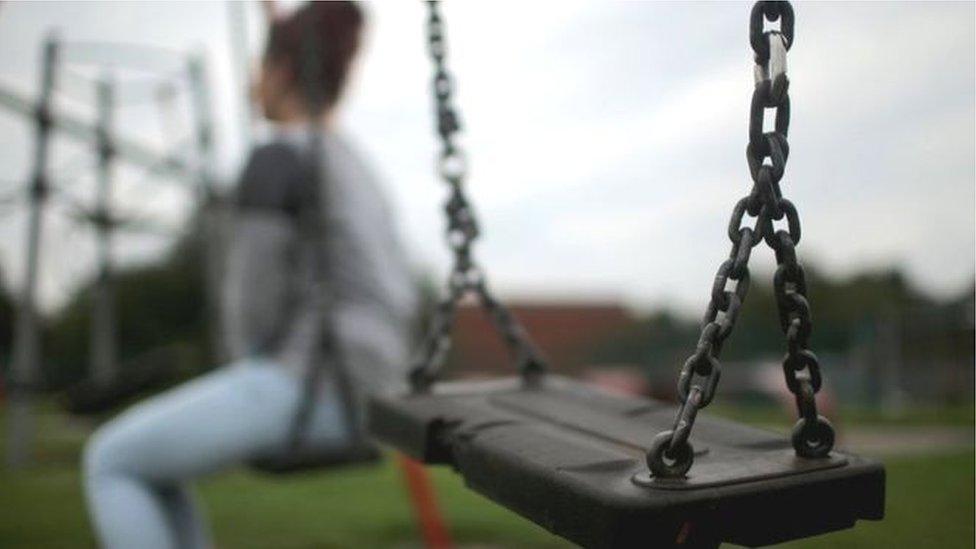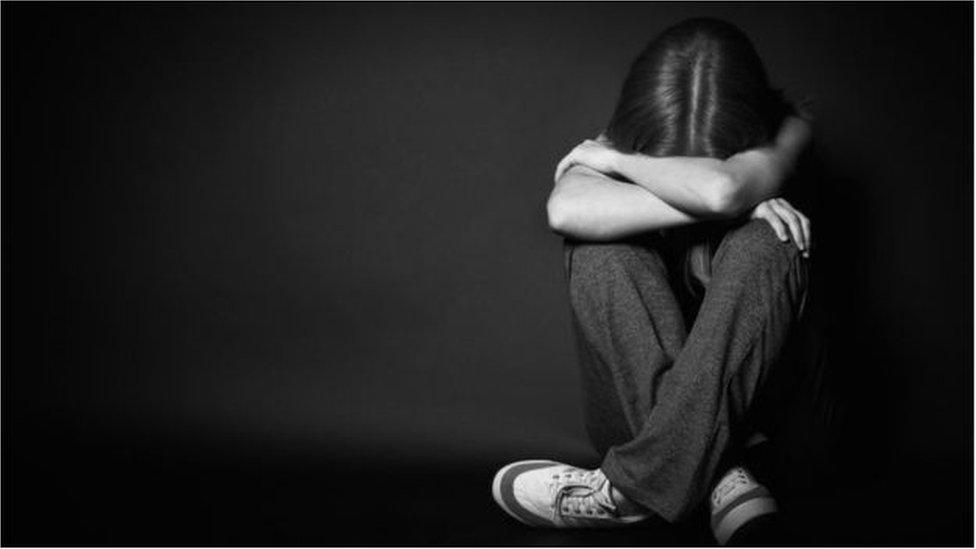Number of children in care at record high in NI
- Published
"If it hadn't been for care I probably would have been dead," says Ciara
A record number of children were recorded as living in care in Northern Ireland in 2018, official figures show.
According to the Department of Health more than 3,000 children are in care.
Records date back to the introduction of the Children (Northern Ireland) Order 1995.
The majority of those in care have been looked after for less than three years.
Just under a tenth have been cared for by the state for 10 years or more.
Koulla Yiasouma, the Northern Ireland Commissioner for Children and Young People, said the reasons for the increase are complex.
"One of the reasons could be that there are more referrals; it may be that we're reaching more children," she said.

The number of children in care in Northern Ireland hit a record high in 2018
"Another could be that poverty is a significant issue in Northern Ireland and what we do know is that in deprived communities sometimes the resilience of parents is less and you will see higher levels of social services involvement and children coming into care from those communities.
"That doesn't mean poor people are bad parents, it means they need more support.
"We hear a lot about mental health, parents that experience poor mental health and have problems with drugs and alcohol - they are not able to look after their children and it's absolutely right that the state intervenes and looks after them," added Ms Yiasouma.
'I probably would have been dead'
A child is only taken into care if it is believed that they are suffering harm or are likely to; if the care they're receiving or likely to receive will cause harm and is not what it would be reasonably expected of a parent; or if the child is beyond parental control.

NI Children's Commissioner Koulla Yiasouma
Ciara was taken in to care due to neglect when she was six years old.
She stayed within the system until she was 18.
"We were left home alone, the youngest in the house was 18 months, so the police were notified," she said.
"My mother, due to her alcohol addiction, was unable to care for us in any shape or form - there was no food, no heating, no electric.
"Looking back on it now it was probably the best thing for me - if it hadn't been for care I probably would have been dead."

Just under a tenth of children in Northern Ireland have been in care for 10 years or more
Many children end up in care because of serious abuse or neglect and one charity in Northern Ireland is trying to make a difference for some of those children by opening a special therapeutic centre.
MACS Supporting Children and Young People is going to give a home to three children aged between six and 12 who have been exposed to some of the most severe adverse childhood experiences (ACEs) in Northern Ireland.
The charity has transformed a country house in Dundrod into a place where children with complex needs, which cannot be met in mainstream children's homes or foster care, can get access to all sorts of therapies and treatments.
'Deeply traumatised'
Mary Ryan, MACS chief executive, said it realised that some of the young people they were working with who had left care were struggling.
"They were massively into drugs, high criminality, prostitution, sexual exploitation, drifting from hostel to hostel… very isolated and alienated from society," said Ms Ryan.
"When we looked back into the history of those young people as children they had been deeply traumatised.
"We thought, was there an intervention that MACS could do at a younger age and could we provide something for that small core group?

Many children in Northern Ireland end up in care because of serious abuse or neglect
"We asked our own young people who had been through the care system and they were telling us that they wanted somewhere safe and the love and security of an adult and something that wasn't institutionalised and having a therapeutic input at an early age."
Scotland has the most children in care in the UK relative to the child population, while Wales has the second highest number of "looked after" children.
Northern Ireland has slightly more than England.
The Department of Health said the number of children in care was growing, with over 40% coming from "deprived areas" in Northern Ireland.
"We have invested in a number of initiatives in response to pressures and challenges within children's services," it added.
- Published27 September 2018

- Published15 October 2018
